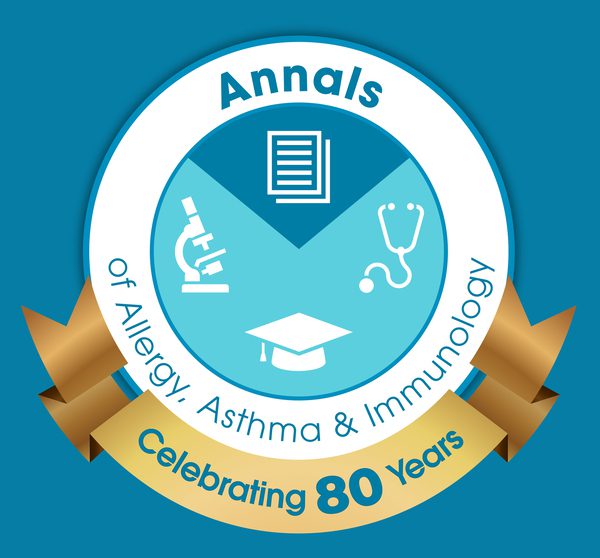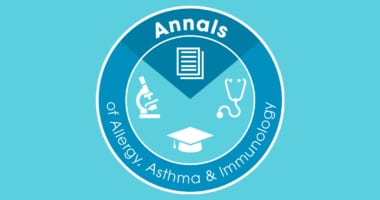As fall continues and we get ready for the College’s annual meeting, the current issue of Annals of Allergy, Asthma and Immunology focuses on common practices that are now outdated – and includes a variety of research articles on allergic issues such as food allergy, asthma, fire ant immunotherapy and multiple types of food allergy. These thought-provoking research and review articles challenge some basic tenets in the treatment of allergic conditions and present evidence that can change how we treat our patients.
For example, the review by Sophia Linton and colleagues discusses when antihistamines should and — more importantly — should not be used. Similarly, Dr. Christopher Parrish, in his food allergy review, indicates that food allergy panels should not be used, as we need only to test foods that we suspect based on history. In the area of drug allergy, the review by Dr. Allison Ramsey suggests that direct challenges should be the first step of diagnosing drug allergy without skin testing.
Another common thought is that patients with EoE tend to be thin and have failure to thrive. However, Dr. Rebecca Koenigsberg and colleagues show that 31% of EoE patients are either overweight or obese. Even though this level of overweight/obesity is lower than the national average of 39%, it is important to realize that being an obese patient does not rule out the diagnosis of EoE. The letter by Dr. Laura Franceschini of a patient with IgG4 deficiency indicates that IgG4 is not critical to development of EoE despite evidence that EoE patients have elevated IgG4 levels. These two articles continue to push forward our ideas that affect treatment and understanding of eosinophilic disease.
In the area of immunotherapy, Dr. Brittanie Neaves and colleagues present evidence that fire ant immunotherapy can be extended to every 12 weeks while remaining safe and effective, and making it more convenient for patients pushing the frontier of therapy.
As always, if you have any comments, please consider sending a correspondence to Annals (email us at annals@ACAAI.org). We always are excited to hear how Annals has helped you improve the lives of your patients!
Jonathan Spergel, MD, PHD, FACAAI
Deputy Editor


